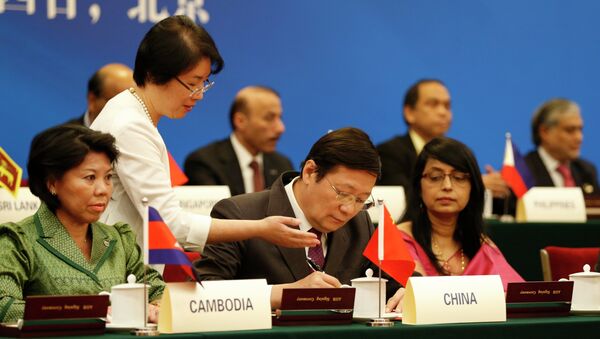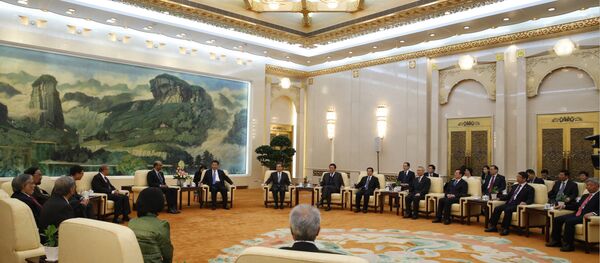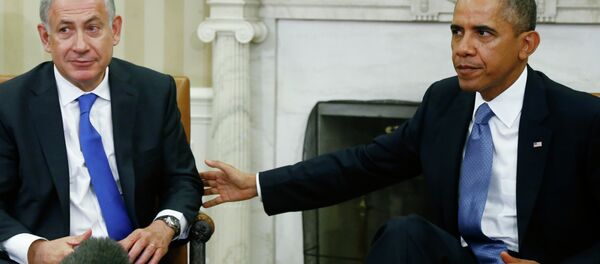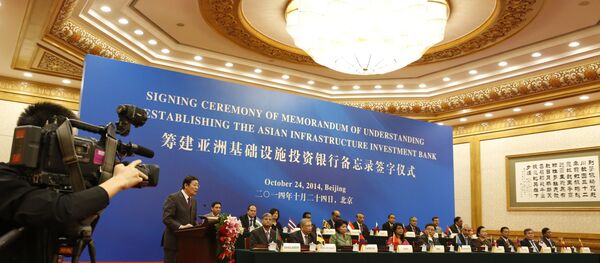The United States "needs to realize that the countries of the emerging world order no longer believe development efforts must spread Western political and economic values," the writer underscored.
So far, developing nations concerned with economic growth, rather than with adopting "neoliberal orthodoxy," consider the China-led initiatives – the New Silk Road project, the AIIB and the BRICS Bank – far more attractive than the IMF's and World Bank's programs.
The writer noted that the United States sees the AIIB as China's attempt to maintain greater control over Asia. However, many of Washington's longstanding allies have already announced their willingness to join the China-led initiative aimed at fulfilling Asia's $1 trillion infrastructure needs.
According to the writer the US should reconsider its global supremacy idea and adopt a pragmatic stance, using the IMF and World Bank purely as instruments for economic policy coordination, giving developing countries "a greater voice." On the other hand, any sort of "conditionality," especially of a political nature, is unproductive and unnecessary for global development and economic stability, the analyst insisted. Washington should get used to its new role as an "influential pragmatist" in a new multipolar economic order, Rebecca Liao concluded.




